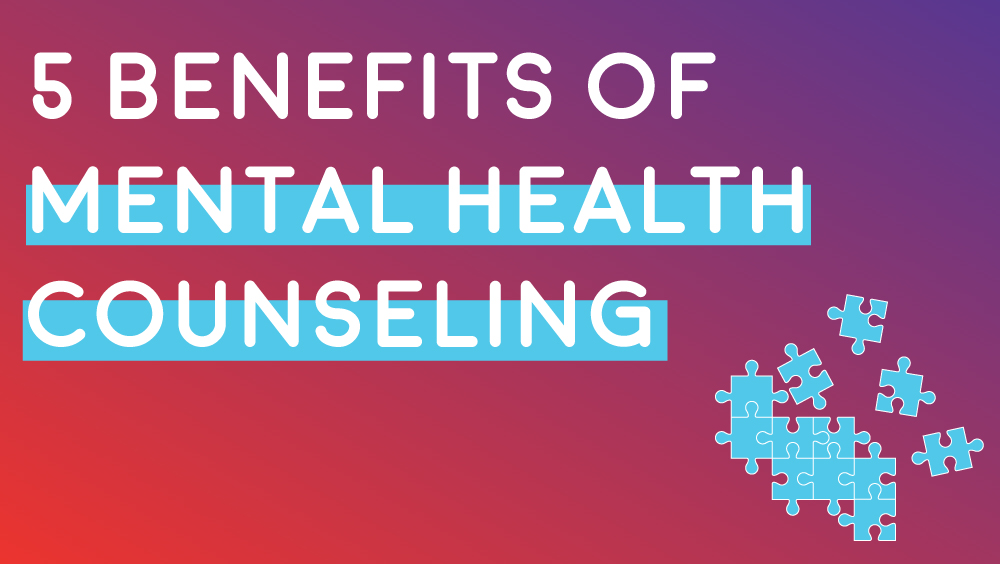Some Known Details About Mental Health Counseling
Some Known Details About Mental Health Counseling
Blog Article
The Single Strategy To Use For Mental Health Counseling
Table of ContentsThe Only Guide to Mental Health Counseling5 Easy Facts About Mental Health Counseling ExplainedMental Health Counseling Can Be Fun For AnyoneSome Known Factual Statements About Mental Health Counseling The Single Strategy To Use For Mental Health Counseling
With treatment, you can acquire understanding into your own patterns of actions and communication, which can bring about more satisfying and pleasing relationships with friends, family members, and charming partners. What we think, we show up. If you're taken in with unfavorable feelings and unfavorable ideas that are interfering with your life, treatment can help., or there are various other adverse means you act. Treatment can help you alter those behaviors that are having a negative impact on your world and connections.

The value of treatment surpasses your psychological wellness. Obtaining treatment to attend to specific elements of your life can aid you be more productive in various other locations, consisting of work. Some research has actually even shown that there's a direct correlation in between looking for psychological health and wellness help and a reduction in missed out on job.

The 9-Second Trick For Mental Health Counseling
You can see a therapist when points are going actually well in your life, or when you're regarding to go via a big life change." Talkspace specialist Kate Rosenblatt, MA, LPC, LMHC. There are even more benefits of treatment than just the ones we have gone over. Treatment can instruct you just how to handle separation, handle sorrow, or construct relationships (enchanting or those with friend or family) in a healthy means.
For the function of the existing research study, regarded benefits and barriers to psychological wellness help-seeking are being checked out. Previous research study discovered that viewed obstacles have a substantial impact on university student' wellness habits selections (Von Ah, Ebert, Ngamvitroj, Park & Kang, 2003). Viewed advantages and obstacles to help-seeking were specifically picked as a result of their impact on decision-making and eventually activity (Glanz, Rimer, & Su, 2005).
Today research looks for to analyze whether or not preconception offers as an obstacle to therapy among university student. Eisenberg et al. (2011) suggested that hesitation concerning treatment efficacy is an additional barrier to getting involved in treatment. Research findings revealed that university student endorsed numerous barriers to taking part in therapy. Mental Health Counseling. Amongst these were: (1) preferring to deal with mental health issue themselves, (2) not having adequate time to participate in therapy, (3) inquiries about whether mental wellness therapy works in remediating troubles, (4) an idea that stress and anxiety is normal or the issue will improve without treatment, (5) useful source absence of cash, and (6) stress over what others would certainly assume if they learnt about therapy involvement.
Team in campus psychological health facilities might be regarded as unfriendly, and long wait times for services might be "off-putting" for students. Variables facilitating more favorable perspectives are frequently at the opposite pole of those elements determined as barriers.
Not known Facts About Mental Health Counseling
One in 3 (34.6%) reported living on university and one in 4 (23.3%) reported living with moms and dads. Virtually half of pupils were associated with campus companies and 1 in 10 reported remaining in a fraternity or sorority. Greater than one-third of trainees (38.1%) reported that they had a relative or pal with a detected mental wellness condition.

An Unbiased View of Mental Health Counseling
Univariate F-tests determined details subscale things that considerably differed. Ladies were much less most likely than men to perceive people who go to counseling as emotionally weak, people that most likely to therapy as crazy, to really feel that people with mental health troubles ought to take care of troubles by themselves, that people that most likely to therapy as unable to solve issues, that people who most likely to therapy slouch, and to feel that people who go to counseling are various from regular people in an unfavorable method.
Study results exposed that females were considerably less most likely than men to hold stigma-related perspectives. This is regular with previous study which likewise found that men hold greater levels of viewed stigma than females (Chandra & Minkovitz, 2006). Based upon research searchings discover here for, it is noticeable that men may be less most likely than women to seek therapy due to reduced regarded barriers along with high stigma-related perspectives.
Fascination About Mental Health Counseling
Furthermore, college wellness professionals may offer curricula targeting men with info on the benefits of psychological wellness treatment and the relevance of looking for help when required. All methods must be evaluated with future research study to establish the result on college pupils, especially men. Contrary to basic populace researches which disclose that females are more probable to seek mental wellness solutions compared to guys (Haunstein et al., 2006; Mackenzie, Gekoski, & Knox, 2006), today research located no substantial distinctions in the number of perceived barriers to help-seeking habits based on sex.
This searching for was unforeseen and could highlight that those that had actually received counseling had a better concept of delay times and other "accessibility" barriers that might make it tough to begin therapy. Possibly, individuals that have obtained counseling sight more barriers than individuals who have not obtained counseling considering that seeking counseling solutions once more could entail fear of self-disclosing personal details to a new counselor.
Report this page